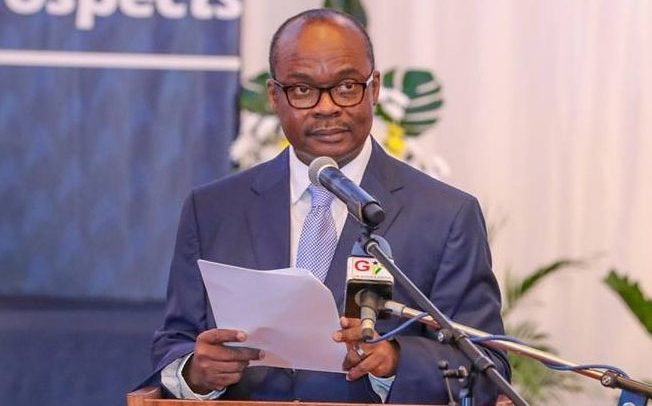- Taxpayers want action
- Depositors want their money
On August 14, 2017, Ghanaians woke up to the shocking news that two local financial institutions, UT and Capital Banks, had their licences revoked by the regulator, Bank of Ghana, as their financial statements showed the banks were living dead (insolvent).
Then a year later, in August 2018, seven other banks – Unibank, Beige Bank, The Royal Bank, Construction Bank and Sovereign Bank— were also declared insolvent and had their licences revoked. Again, the regulator cracked the whip on Heritage Bank and Premium Bank in January 2019 – with the former said to have obtained its licence through fraudulent means, and the latter also declared insolvent. All these banks’ assets, with the exception of UT and Capital Banks which were taken over by GCB Bank, have been transferred to the Consolidated Bank Ghana Ltd.
The show didn’t end there, as in May 2019 the Bank of Ghana further revoked the licences of 347 microfinance companies which were declared insolvent. Then in August of the same year, 23 Savings and Loans companies also had their licences revoked. These actions, according to Finance Minister Ken Ofori-Atta, have cost government GH¢13.6billion; which represents 3.5 percent of GDP.
Besides this, a further GH¢5billion has also been spent on the president’s directives to fully pay all depositors whose funds were locked up with the failed SDIs and MFIs. Also, an additional GH¢3.1billion has also been spent on supporting investors in failed asset management companies regulated by the Securities and Exchange Commission (SEC). These all total GH¢21.6billion, representing 5.6 percent of GDP, spent so far on paying depositors and restructuring the financial sector.
But the troubling issue here is that three years after the first two banks had their licences revoked, and after spending such a colossal amount of taxpayers’ money on the financial sector, only GH¢2billion has been retrieved so far. That amount represents less than 10 percent of the damage, yet many depositors still have their monies locked up in these banks. All they are told is that the receiver is still in the process of verifying their transactions and that they will receive their monies soon – the soon that never comes.
When the licences of those financial institutions were revoked, the regulator sent out a strong message that all directors and owners of financial institutions who are found complicit in the build-up to their institution’s collapse will be handed over to the law, with the main primary purpose of holding them accountable and retrieving funds spent on the exercise.
“Any persons found to have contributed to the failure of these institutions will be declared not fit and proper to engage in a business regulated by the Bank and reported to the law enforcement agencies for criminal action and further action including possible prosecution where applicable. In addition, the Receiver will institute civil actions against relevant persons to claim damages and restitution where applicable,” a statement from the Bank of Ghana said in August 2019.
Granted, some actions have been taken in this regard. First of all, the cases have been referred to the courts to try and hold these directors, shareholders and owners accountable. Secondly, auction sales have been organised by the receiver to sell vehicles belonging to these collapsed institutions to make up some of the cost incurred. But progress has been slow. For just GH¢2billion to be recovered as of now, and knowing the legal framework in Ghana where cases can drag on for decades, it sends a worrying signal that taxpayers’ money has gone down the drain with little or no hope of getting it back.
When the central bank Governor, Dr. Ernest Addison – the man who oversaw the execution of the financial institutions’ revocation of licence – was asked in a press conference last month his opinion on the delay in retrieving the monies and holding the ones complicit responsible, he acknowledged that the process has been slow…but was upbeat justice will be delivered in the course of time.
“As we know, the receivers are in court with the shareholders and directors trying to retrieve assets of the defunct institutions, and it takes time. The wheels of justice in this part of the world grind slowly, so the process of recovery for these assets is more complicated and it takes time; but we are confident that we will get there,” he said during a press conference in Accra.
From the legal point of view
For the taxpayer and depositors of these defunct financial institutions, what matters most to them is for the courts to rule on the matter quickly, and for those responsible to be held accountable for the monies to be retrieved. But the process, according to legal practitioner and law lecturer at the University of Professional Studies Accra (UPSA), Gertrude Amorkor Amarh, is not as simple as it appears – sometimes due to factors inherent in the litigation process which cause delays.
She said in an interview with the B&FT that delays in determination of matters before a court can be caused by both processes of the courts as well as conduct of parties to the case.
“In our judicial system, there are rules and procedures which guide the conduct of all civil litigation and criminal prosecutions. These rules are made up of various processes that must be followed by disputing parties and accompanying time-limits within which various steps must be taken. These are to ensure that disputing parties are given the opportunity to present their respective cases before a court of law or other similar adjudicating fora for determination. The starting point in discussions such as these, therefore, is a recognition that the processes involved in litigation can naturally cause some delays.
“Having laid that foundation, we also need to acknowledge that there can be other factors attributable to the court itself or lawyers and disputing parties which can lead to delays in the process. Some of these factors are frequent requests for adjournments, failure to comply with orders given by a court, lack of cooperation among parties, among others. Sometimes, the court itself may not even be sitting for one reason or another, and all these can cause delays in the quest for expeditious adjudication,” she said.
To reduce the delays, she adds, provision should be made for certain cases to be categorised as priority, considering the national interest and number of people affected. That way, such cases would be given more attention and resolved quickly.
“We need to acknowledge the need to have speedy resolution of cases. One way to do this is by giving priority to certain cases for speedy resolution. For instance, looking at the sheer number of people affected by certain cases, such cases can be considered a priority – for which reason immediate attention must be given to them. If you consider the large number of depositors affected by the banking crisis, it stands to reason that we can prioritise those cases and stay committed to resolving them expeditiously. Already, the majority of our courts recognise this and make a conscious effort to resolve disputes speedily; but this requires the cooperation of all others involved in the matter,” she said.
The lawyer’s position emphasises the need for reforms in the country’s legal system to ensure timely and swift delivery of justice.
Time is running; Ghanaians are running out of patience; the taxpayer wants justice delivered, and depositors want to be paid. Three years is long overdue to see some justice or at least feel its air blowing.










